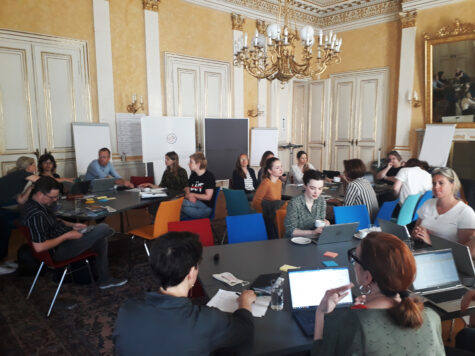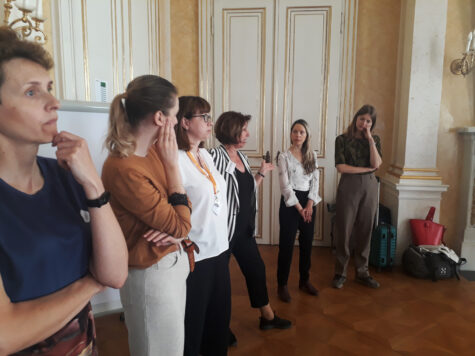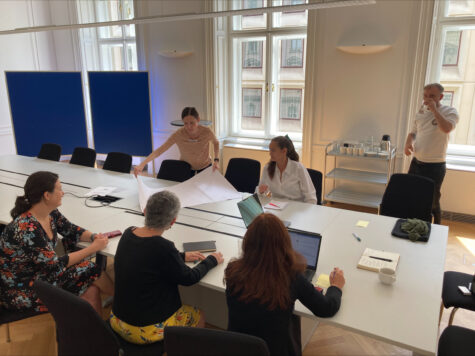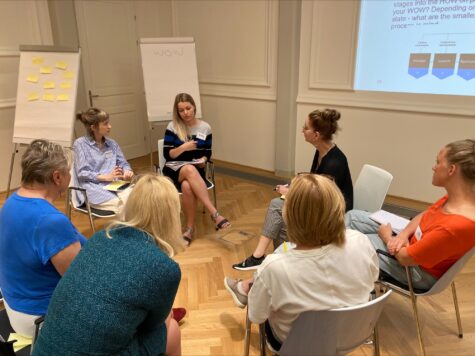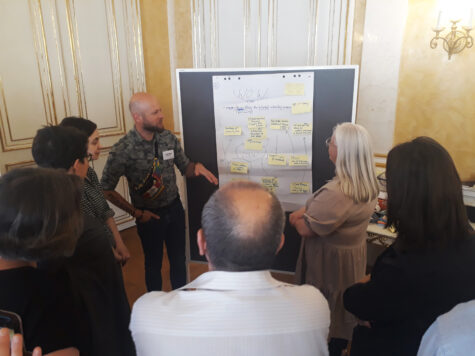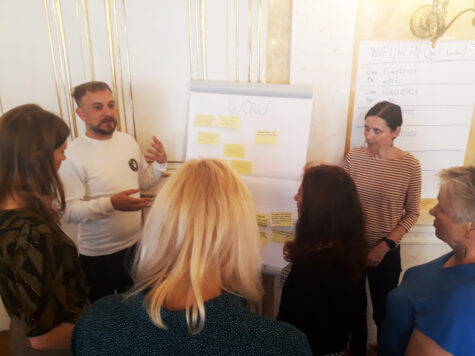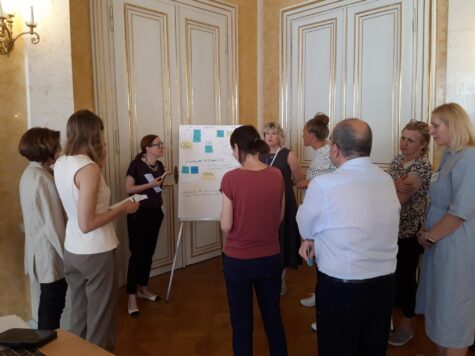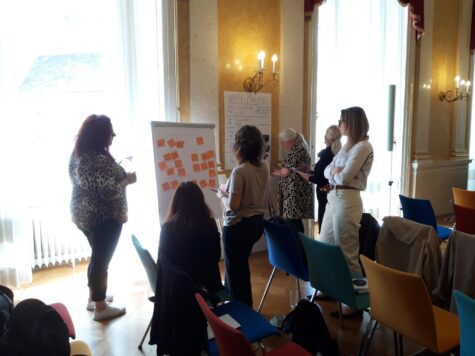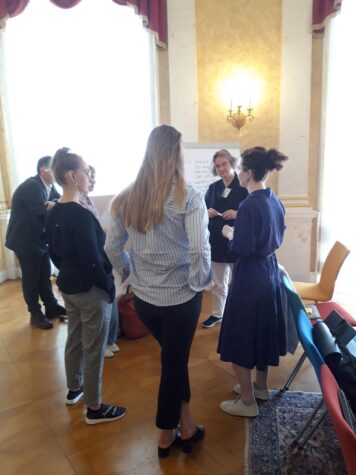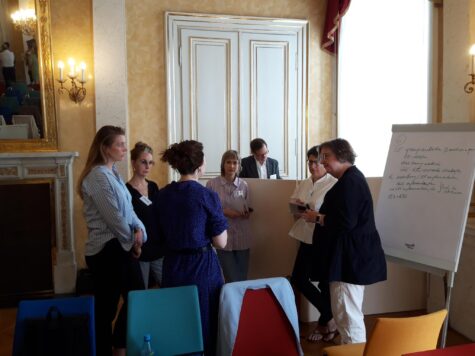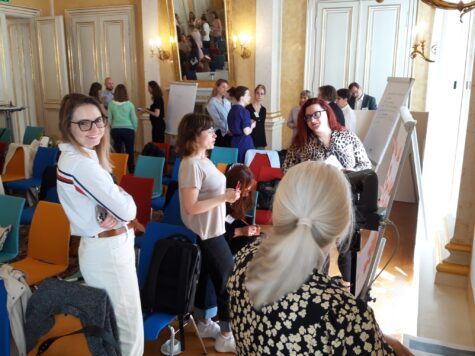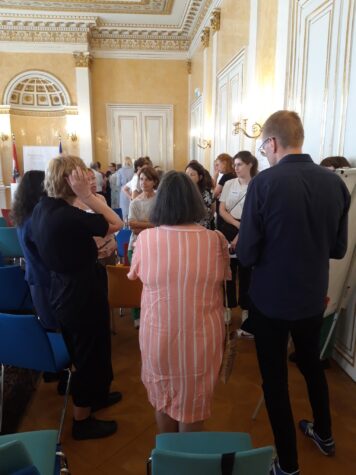Events
Between 22 and 24 May, GENDERACTIONplus consortium met in Vienna, Austria, to discuss the work ahead and learn more about intersectionality and what it means at the research and innovation policy level. More than fifty representatives of beneficiaries and associates partners engaged in lively discussions that moved us forward in understanding the issues we face and clarifying mutual expectations.
The event took place on the premises of our partner Austrian Federal Ministry of Education, Science and Research (BMBWF). On 22 May the two communities of practice, one of RFOs and the other of national authorities, meet to discuss the upcoming work and priority topics.
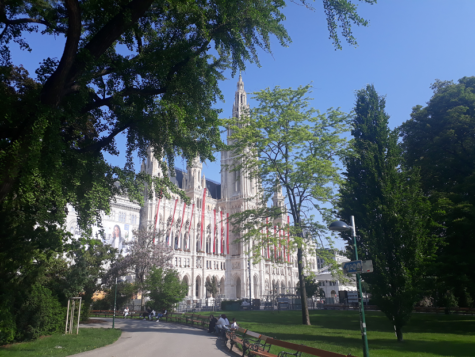
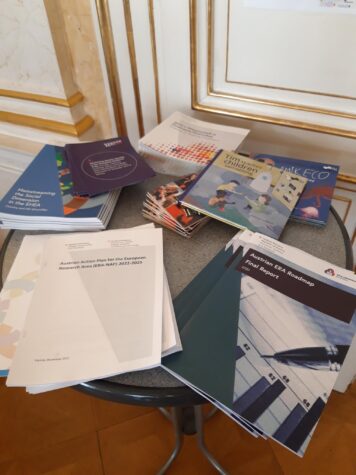

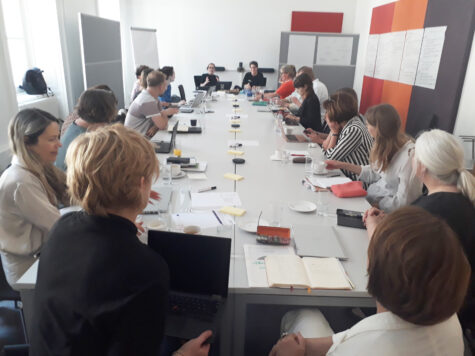
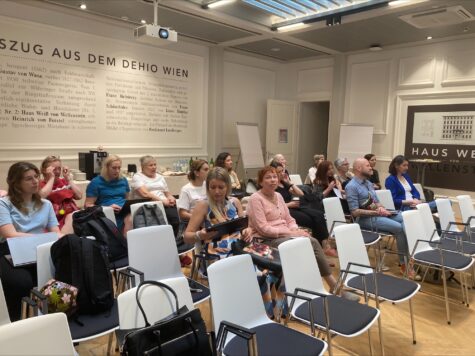
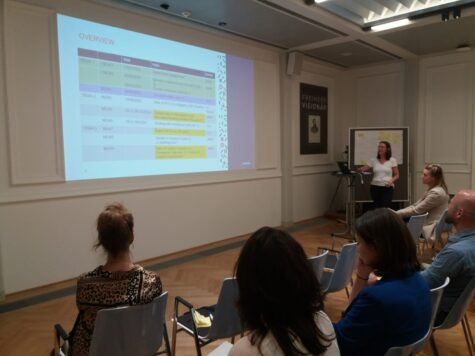
On 23 April, after the opening speeches of Roberta Schaller-Steidl from the hosting BMBWF and the project coordinator Marcela Linková, the meeting participants were updated by Heidi Holt Zachariassen (Committee for Gender Balance and Diversity in Research) and Fredrik Bondestam (University of Gothenburg) on the results of benchmarking on intersectionality and gender-based violence. The following minutes were dedicated to a discussion of impact plans, which aim is to ensure the project impact at the national level. The session was moderated by Linda Marie Rustad (Kilden at the Research Council of Norway). Helen Garrison and Maria Hagardt then introduced Task 8.3 on citizen and stakeholder engagement.
The Mutual learning workshop on intersectionality started with a very stimulating keynote speech by GENDERACTIONplus Advisory Board member Yvonne Benshop from Radboud University. In her speech, she not only explained the theoretical anchoring of the concept and terms close to it, such as diversity and inclusion, but also outlined the paths that can be taken in the field of practical application, i.e. in policies. Anne Pepin from the European Commission joined us online and presented the current and planned activities of the European Commission and its supported projects and initiatives in the area of intersectionality.
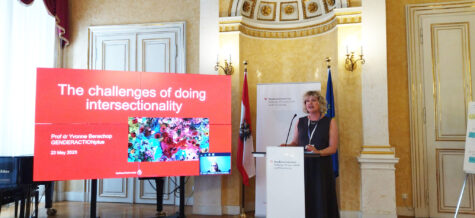
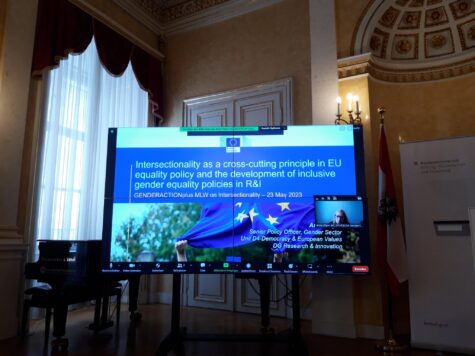
The following moderated discussion with Ross Woods (Higher Education Authority, Ireland) and Arnold Lubbers (Dutch Research Council, the Netherlands) was very inspiring and brought concrete examples of activities and approaches to intersectionality and diversity conducted in Ireland and the Netherlands. During the closing reflections, participants often mentioned that they were leaving with a more concrete idea of how to include intersectionality aspects in their work and with relief that even small steps are important and count.
On the morning of the last day of our meeting, the discussions about the implementation of intersectionality took place in breakout sessions of the two communities of practice. The closing plenary served the present the key points of discussion from each of the communities and provided room for closing reflections.
It has been a great opportunity to meet and exchange personally! All participants agreed that they are leaving with lots of inspiration, motivation and enthusiasm for the work we have ahead.
